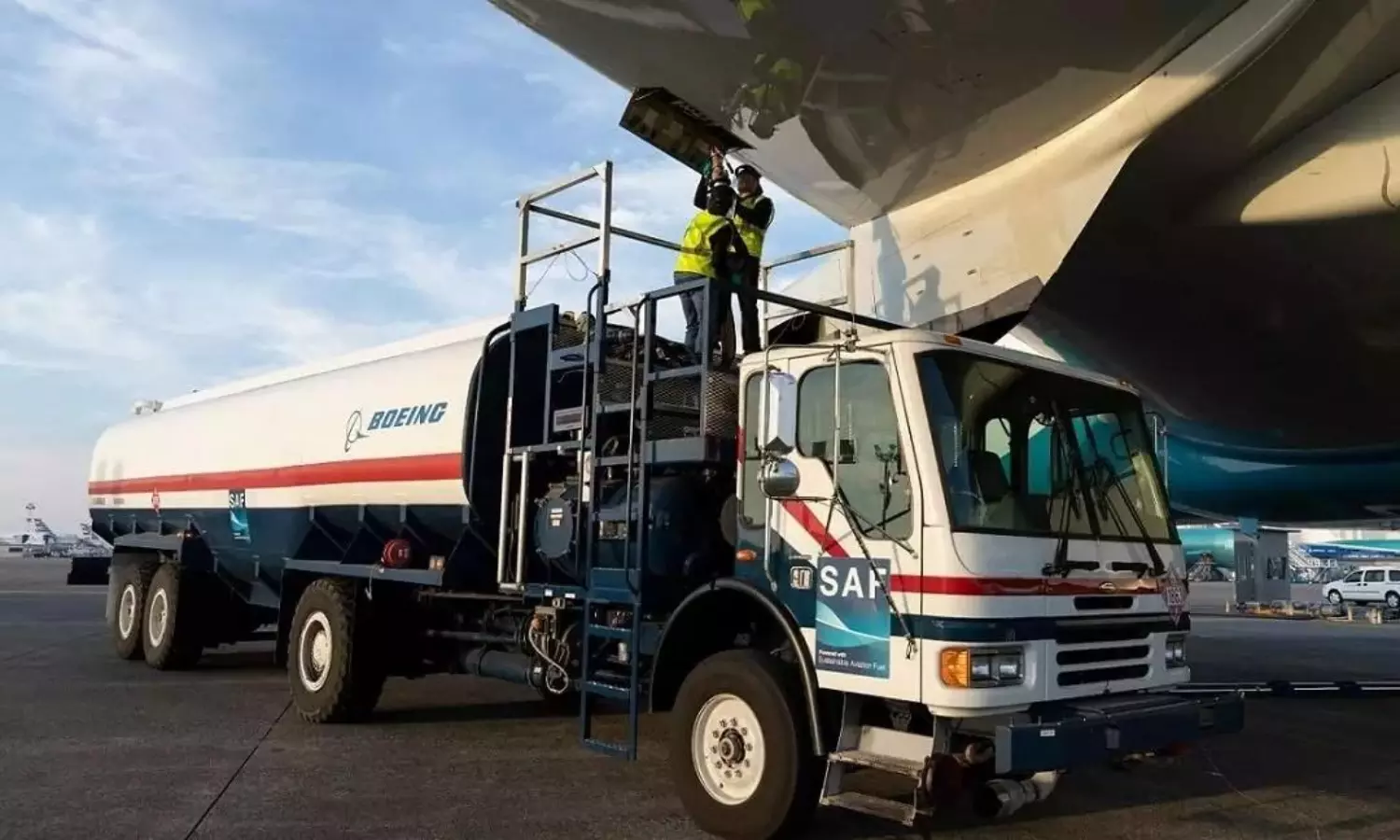Public, pvt partnerships can play key role in SAF push: Aviation CTOs
Policymakers have chance to accelerate processes by providing support to multi-year development of novel technologies

Public-private partnerships can play a key role in increasing the development and use of sustainable aviation fuel (SAF) through policy definition and alignment along with financial incentives.
"Policymakers have the chance to accelerate these processes by providing sustained and predictable support to the multi-year development of novel technologies, and by stimulating the ramp-up of capacity," says a statement by chief technology officers of seven major aviation manufacturers.
"Recognising the technical challenges associated with decarbonising aviation, greater public policy and financial support to accelerate SAF production and distribution over fuels used for surface transportation is essential. Additionally, close collaboration with the aviation industry and fuel suppliers is required in the development of infrastructure and investment in SAF production capacity to accelerate availability in support of demand. Lastly, establishing standards for qualification of 100 percent SAF pathways that ensure full compatibility with engines and aircraft for civil and appropriate defence applications as they become available is essential."
The statement was signed by Sabine Klauke, Chief Technology Officer, Airbus, Todd Citron, Chief Technology Officer, Boeing, Bruno Stoufflet, Chief Technology Officer, Dassault Aviation, Christopher Lorence, Chief Engineer, GE Aviation, Geoff Hunt, Senior Vice President, Engineering, Pratt & Whitney, Grazia Vittadini, Chief Technology Officer, Rolls-Royce and Eric Dalbiès, Strategy & Chief Technology Officer, Safran.
The development of fuel-efficient aircraft technologies has been a priority for the aviation industry for over 50 years and remains a priority, the statement said. "Greater uptake of SAF would mitigate the projected growth in aviation CO2 emissions as the customer demand for global air travel increases.
"Our companies are steadfast in delivering the technical solutions required to reduce the carbon emissions of the air transportation sector through our work in three key areas:
* Developing advanced aircraft and propulsion technologies that enable net-zero carbon emissions while maintaining the safety and quality standards of our industry;
* Implementing improvements in aircraft operations and infrastructure; and
* Supporting policies and measures that accelerate the availability and adoption of qualified SAF."
Increasing the production and utilisation of SAF is a critical step for achieving the air transportation sector’s net zero CO2 emissions goal by 2050. "However, the production of SAF is currently estimated at less than 0.1 percent of the global demand for jet fuel today. Moreover, SAF prices are typically two to five times higher than the price of conventional jet fuel. The supply is further constrained by competition for renewable fuels from other sectors that have alternative decarbonisation options such as with surface transportation and heating."
The CTOs welcomed the political agreement found on ReFuelEU Aviation, which will provide a strong signal for the deployment of SAF in air transport, and look forward to the legislation being adopted as soon as possible. "The EU needs to implement the right industrial support policies, within the Net Zero Industry Act, to accelerate the availability of SAF and synthetic kerosene at commercial scale, building on the work of the Industrial Alliance for Renewable and Low Carbon Fuels (RLCF)."
In addition, qualification efforts that support the development of co-processing technologies that can harness the existing capital infrastructure will accelerate the availability of SAF at commercial scale, the statement added.


